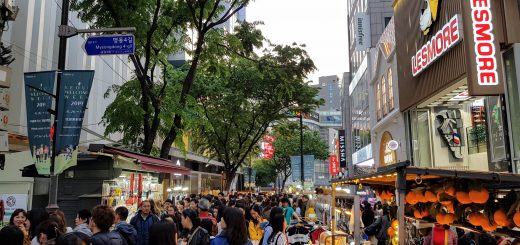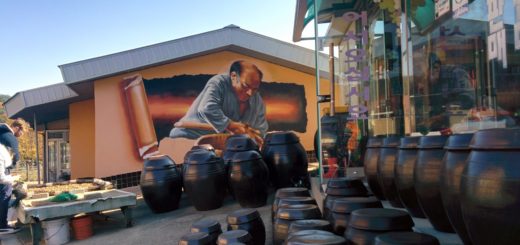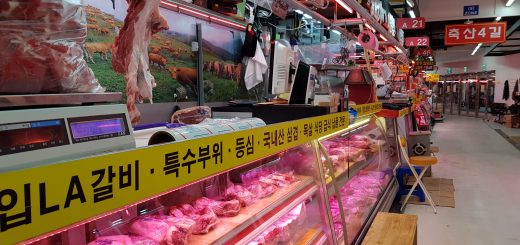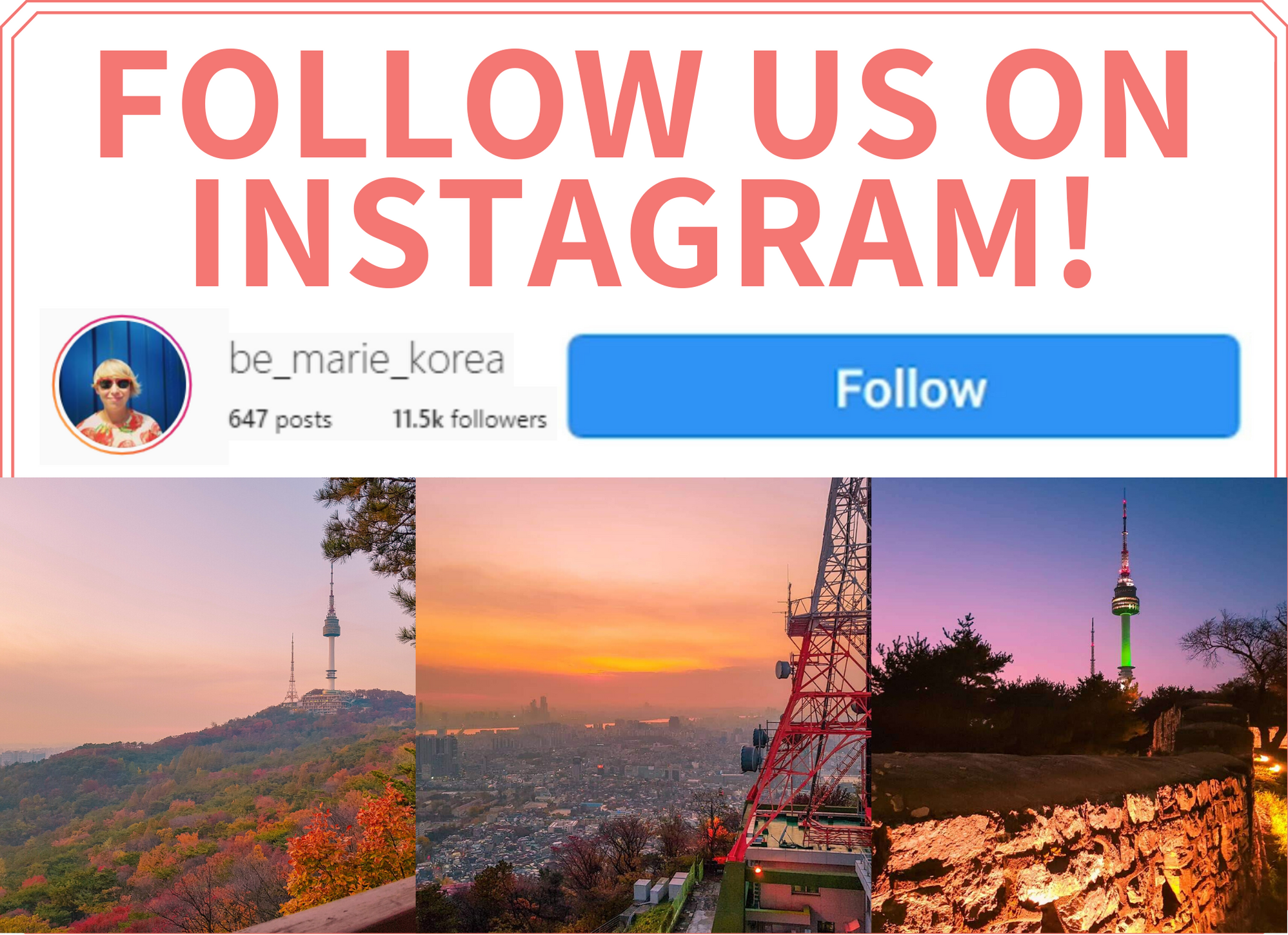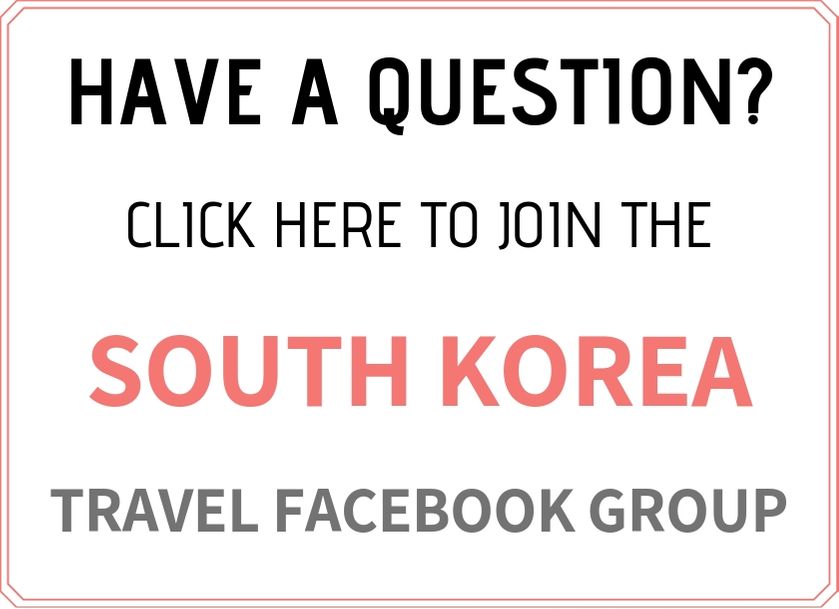Seoul Central Mosque: Korea’s First Mosque
The establishment of the Seoul Central Masjid (서울 중앙성원) dates back to 1974, marking an important milestone in South Korea’s acceptance and integration of Islamic culture and heritage within its societal fabric. Positioned in Itaewon, this iconic religious construct proudly stands as the very first mosque built in Korea, signaling the onset of subsequent mosque constructions in other eminent cities such as Incheon, Daegu, and Busan.
The Korean Government graciously gifted the land upon which the mosque was set to be assembled, proving instrumental in making it a reality. In addition, the construction project of this pioneering institution was generously funded by a multitude of Islamic nations across the globe. After two years of careful deliberation and meticulous construction, the Seoul Central Masjid was officially inaugurated in the year 1976.
The mosque holds a special place in South Korea due to its profound importance in furthering the understanding and respect for Islamic culture and traditions among its citizens. The Seoul Central Masjid has served as a place of worship for Muslims, and as an educational center where people of all backgrounds can learn about Islam.
Key Features:
-
Historic Significance: The Seoul Central Masjid, being the first mosque in Korea, played a major role in marking the presence of Islamic culture in the country. The mosque’s construction indicated burgeoning levels of multiculturalism within Korea.
-
International Support: The project of constructing the first mosque received financial aid from numerous Islamic countries, demonstrating international cooperation and shared interest in promoting Islamic culture and religion.
-
Educational Role: Beyond serving as a place of worship, the mosque has evolved to become an essential institution for teaching and learning about Islam, fostering a sense of unity among various cultures residing in Korea.
The Seoul Central Masjid continues to act as an essential symbol of Islamic history and culture within South Korea and serves as a beacon of religious tolerance and multicultural acceptance.
Contents
Overview of Islam in South Korea
Islam, though considered a minority religion in South Korea, has a strong historical and cultural presence that has grown significantly over the years. According to the Korea Muslim Federation, the estimated number of Muslims in South Korea stands at approximately 100,000. This figure is seen as steadily increasing with the continuous interaction with the Middle Eastern countries and the rise in the number of Muslim migrants and tourists venturing into the country.
South Korea’s government has been making exceptional efforts to make the country more welcoming and accommodating for Muslims, particularly making strides towards a more Muslim-friendly atmosphere. Such measures include:
-
Increasing the number of Halal-certified restaurants: South Korea has expanded its efforts to set up Halal-certified restaurants to cater to the dietary restrictions of their Muslim residents and visitors. The government is actively promoting these certifications to ensure an enriching gastronomic experience for the Muslims.
-
Creating Muslim-friendly accommodations: The government is also focusing on creating accommodations that meet the specific religious and cultural needs of the Muslim community. This includes amenities like prayer rooms and other facilities.
-
Building prayer rooms: There has been significant investment in the construction and enhancement of prayer rooms across the country. These spaces are designed to offer a peaceful and respective environment for Muslim prayers.
The Itaewon area is the primary location of the Muslim community. It has become a vibrant and multicultural “Muslim hub,” particularly popular for its diverse array of foreign food marts and halal restaurants. This area serves as a testament to South Korea’s commitment to accommodating its Muslim population and visitors and fostering a multicultural society.
Visiting the Seoul Central Mosque
The Seoul Central Mosque, an important cultural landmark in South Korea, is a haven for both Muslim residents and international tourists curious about Korea’s Islamic community. The mosque is a symbol of religious tolerance and diversity in this part of the world. Mainly, this sacred establishment offers two distinct prayer rooms – a spacious men’s section and a slightly small area reserved for women. The mosque’s regulations are firm on maintaining appropriate attire for all visitors, an essential protocol that ensures respect to the Islamic beliefs and customs.
Women in particular, are required to ensure that they are fully covered upon entering the mosque. Long skirts and shawls, customary wear while visiting mosques, can be borrowed beforehand from a stand near the mosque’s entrance. During Friday prayer times, known as Jumu’ah, there is a restriction for non-Muslim individuals to enter the premises of the mosque from midday up until the afternoon. However, sightseeing and exploration of the outer mosque vicinity during these hours are fully allowed.

The Seoul Central Mosque has been serving as a fundamental centre of worship and religious learning since its inception. It not only facilitates the practice of Islamic faith regularly but also opens its doors to visitors interested to learn about its architectural style, religious practices, and South Korea’s Islamic history. Even though non-Muslim tourists might not have access to the mosque during the primary prayer time in Seoul, they still can appreciate its architectural beauty from outside, engaging in a rich cultural experience.
This beautiful mosque stands as a blend of traditional and modern Islamic architecture and an important part of South Korea’s cultural landscape. A visit to the Seoul Central Mosque indeed offers a curious mix of solace, intrigue, and enlightening experience to all its visitors.
Visiting Details:
– Location: 732-21 Hannam-dong, Yongsan-gu, Seoul, South Korea
– Dress Code: Modest, full-covering clothing; head cover for women
– Timings: Open to tourists outside prayer times (especially Friday Jumu’ah prayers)
– Entrance Fee: Free
Planning Your Visit?
Seoul Central Mosque, a symbol of the vibrant Islamic culture in Seoul, is easily accessible from the Itaewon station. A brisk seven-minute walk up the hill takes you straight to the mosque from the station. On your walk, you will pass by the lively main road filled with an eclectic mix of foreign markets, shops, and eateries. So whether you’re craving Indian cuisine, searching for Halal food, or yearning for Turkish delights, you’re in luck! These diverse cultural offerings make your trip to the mosque not just a spiritual journey, but also a culinary adventure.
Address: The mosque is located at 732-21, Hannam 2-dong, Yongsan-gu, Seoul-si 서울특별시 용산구 우사단로10길 39 (한남동). It’s undoubtedly one of the physical structures that encapsulate the essence of multiculturalism in Seoul.

The Seoul Central Mosque, with its traditional Islamic architecture, stands majestically over Itaewon, providing spiritual solace for the Muslim community and acting as a window into Islamic culture for non-Muslims. Over time, it has become a meaningful landmark bridging cultural differences and promoting harmony and understanding amongst diverse groups in the city.
Planning Tips:
- Accessibility: Public transport, especially the subway, provides comfortable and quick access to the Itaewon area.
- Best Time to Visit: While the mosque is open for prayers throughout the week, Fridays are particularly vibrant due to the special afternoon prayer (Jummah). But, to fully enjoy the mosque and the surrounding area, weekdays are less crowded.
-
Nearby Attractions: The vibrant neighbourhood around the mosque also offers other attractions like the Itaewon shopping district, various international restaurants, and the War Memorial of Korea. So, consider reserving a full day for your visit.
No matter your faith, a visit to the Seoul Central Mosque offers a unique and captivating glimpse into the Islamic lifestyle and practices in the heart of multicultural and bustling Seoul.
Explore Halal Food Options in Seoul
In the metropolitan heart of South Korea, Seoul offers a rich array of Halal food options. From traditional Korean cuisine to mouth-watering Indian and Middle Eastern fare, Seoul’s cosmopolitan hub brings diverse cultures and cuisines together.
Especially in the region of Itaewon, an international district famous for its global vibe, you can discover numerous Halal restaurants. These eateries not only offer a rich culinary experience, but also provide religious comfort to Muslims living in or visiting Seoul. Each of these restaurants is certified by the Korea Muslim Federation, ensuring that they adhere strictly to Halal standards and practices.
An important point to note is that not all restaurants labeled ‘Halal’ are officially certified. To make sure that foods meet Halal requirements, look out for establishments endorsed by recognized certification bodies like the Korea Muslim Federation.
To guide you in selecting the best eateries, consider visiting this link. Here, you will find a curated list of top-rated, recommended Halal restaurants across Seoul!
The list is versatile, offering a range of culinary delights suitable for different preferences and budgets. It not only includes high-end restaurants but also affordable eateries offering sumptuous street food. Whether it’s spicy lamb skewers, aromatic biriyani, or rich Korean stews, you can find a stunning array of dishes to enjoy.
To keep up with the dynamic food scene in Seoul, it’s essential to remember that new restaurants are continually opening, and the food landscape is ever-evolving. Thus, although the provided link is an excellent starting point, don’t be afraid to venture out and explore—the city is full of culinary surprises!
In conclusion, Seoul’s vibrant, multicultural footprints extend to its food culture—embracing the rich tapestry of global cuisines, including Halal food. Whether you’re a devout Muslim who needs Halal food, a foodie keen on exploring different culinary cultures, or just someone looking for exciting new food experiences, Seoul has a lot to offer.
Recommended Discoveries for You
For all the tea and coffee enthusiasts out there, step into the Modern Coffee Shop in Itaewon. It’s a must-visit destination that combines an impressive minimalist design with the craft of an award-winning barista, providing you with the perfect environment to serve and stimulate your caffeine cravings in style.
Some key highlights of the Modern Coffee Shop in Itaewon include:
- The unique stylistic ambiance characterized by the minimalist design.
- An award-winning barista who creates coffee miracles, guaranteeing a superb cup every time.
- The location in the vibrant Itaewon district famous for its diverse culture and energetic nightlife.
Whether you’re exploring the popular shopping districts, hiking up Namsan Park’s trailing paths, or immersing in Korea’s technological marvels, it’s important to have the right travel gadgets at your disposal. One such thing would be a reliable power adapter for your various electronics. Visit Adapters For Your Korea Trip to find information on the best power adapters suited for your trip to Korea and have an uninterrupted digital experience.
Now, the question to you, our reader: Have you been to the Seoul Central Mosque or any other mosque in South Korea? Your experiences and insights could be valuable to other readers. Please share your encounters and thoughts in the comment section below. It would be indeed exciting to learn about your spiritual and cultural foray in South Korea.
Your insights today could potentially shape someone’s trip tomorrow.
Frequently Asked Questions
What is the best time to visit Seoul Central Mosque?
The best time to visit Seoul Central Mosque is during weekdays to avoid the crowd that typically gathers on weekends. Prayer times might be busier, so visiting outside of these times can provide a quieter experience. Checking the local timings for any particular events at the mosque can also enhance your visit.
Are there any specific dress codes to follow when visiting Seoul Central Mosque?
Yes, visitors to Seoul Central Mosque are expected to dress modestly. This generally means long sleeves and pants or skirts for both men and women. Women may also be required to cover their heads while inside the mosque.
Is there any entry fee for visiting Seoul Central Mosque?
No, there is no entry fee for visiting the Seoul Central Mosque. The mosque is open to the public for those who wish to visit, explore, or pray. Donations are always welcome, however, as they help with the maintenance of the mosque.

